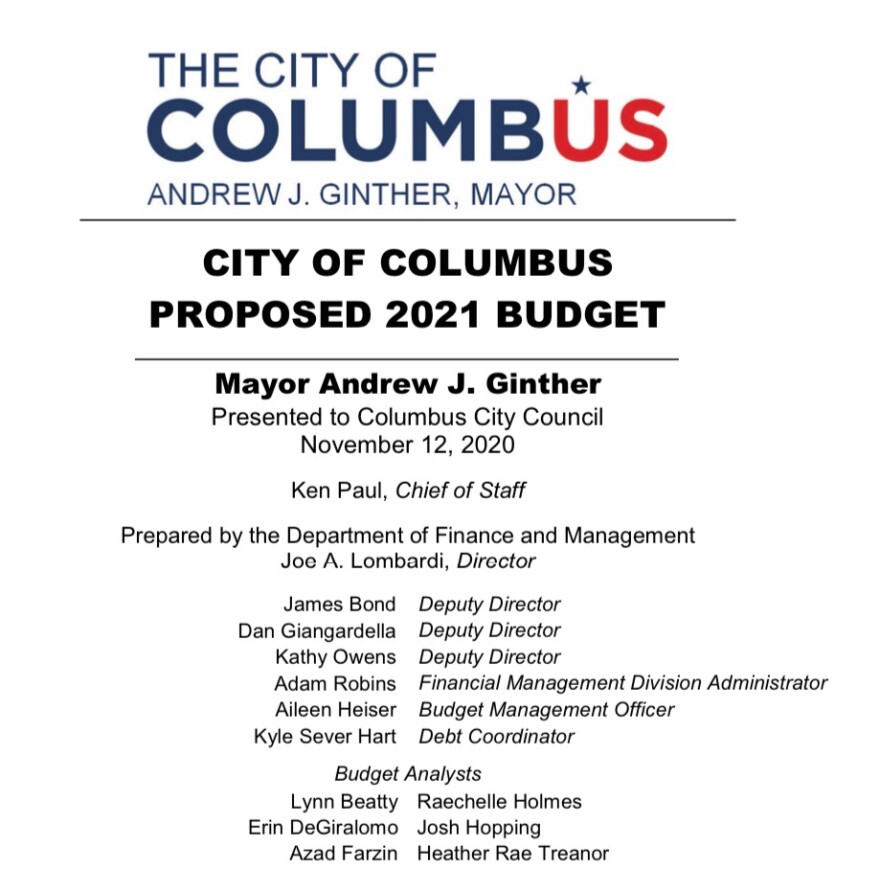Columbus Mayor Andy Ginther today released his proposed 2021 General Fund budget, a $964 million plan that maintains basic services and the city's Rainy Day Fund while also avoiding layoffs and furloughs.
“The city’s financial position, while challenged, remains strong, and reserves have been maintained to assure the city can continue to weather a pandemic that shows no signs of waning,” Mayor Ginther said. “The 2021 General Fund budget reflects my commitment to closing existing gaps, advancing equity and making positive gains on our community’s highest priorities, including: police reform, affordable housing and neighborhoods. In a year that has seen increased gun violence, homicides, and a national reckoning over racial injustice and police brutality, it is imperative that the city changes its approach to funding public safety. While funding the Division of Police remains a significant portion of the city's budget, the 2021 proposed budget reflects increased investments in public health, technology, and neighborhoods to reduce the burden on police and to formulate a more holistic approach to public safety."
That includes about $1.8 million to embed social workers with police to better address behavioral health, poverty and trauma situations allowing officers to focus on violent crime. As for how that would work, Ginther provided the following example.
"I think of a family in crisis who has a teenager that has significant mental health challenges and issues and has attempted to take her own life," Ginther continued. "Our thought is that probably the best response to that situation may not be solely a law enforcement officer but folks who are professionally trained in addiction and mental health expertise that can help de-escalate the situation and work with law enforcement if necessary if the person is a threat to themselves or others. We believe that kind of approach makes the most sense. We'll get the right response at the right time for that family in need and make sure that our officers can focus on our greatest need and that is helping us to reduce and battle the rise in violent crime in our community."
Ginther's budget proposal includes $1 million to establish and staff the Civilian Police Review Board and Office of the Inspector General for the Division of Police, a ballot issue overwhelmingly approved by voters last week. The proposed allocation for public safety of $637 million marks a drop about $12 million from last year according to the budget summary. Outside of public safety, the plan calls for funding a director level position to focus exclusively on the city’s affordable housing strategy and an additional $3 million to Columbus Public Health specifically for COVID-19 response. Public Health’s total budget increased by roughly $5.6 million from 2020’s figure. Another reflection of the pandemic can be seen in the city’s Parking Meter Fund. It’ll drop from about $10.2 million in 2019 to a projected $7.9 million this year, and an anticipated $6.7 million next year. The city expects its Rainy Day Fund to be at $85.2 million by the end of 2020 and set a goal of having $90 million by 2024. Columbus City Council will soon begin budget deliberations and public hearings, before approving an amended budget in early February.










